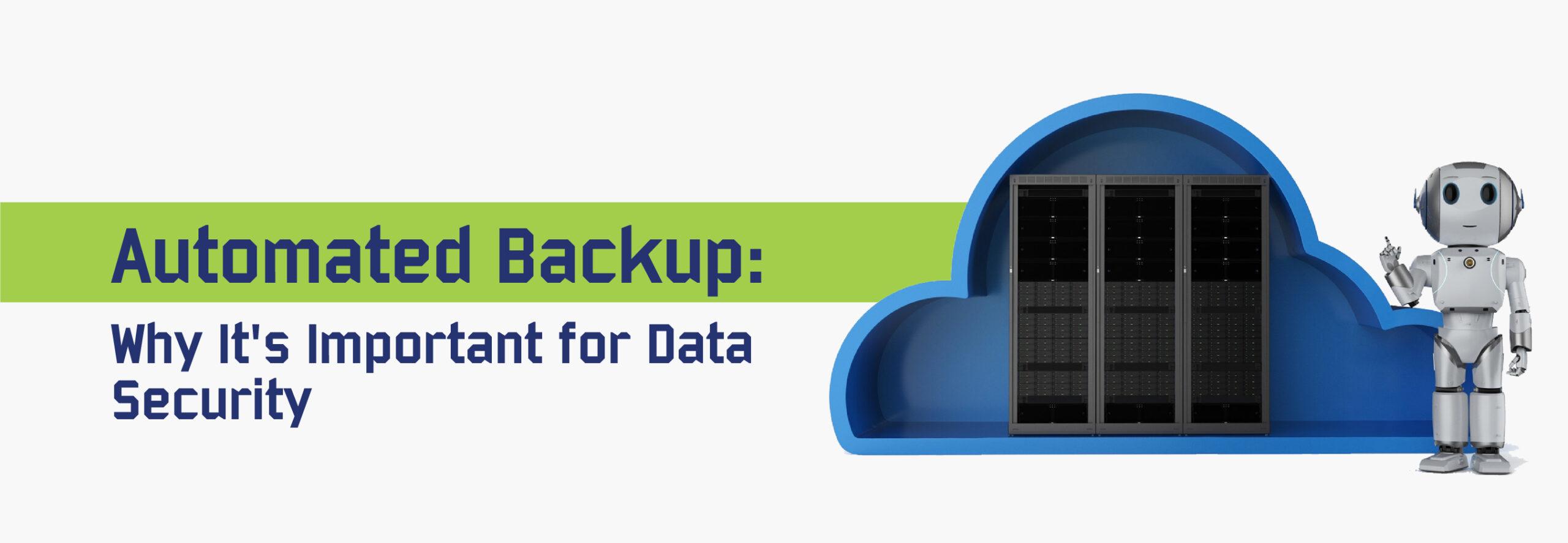
Automated Backup: Why It’s Important for Data Security
Most businesses recognize the role backup and recovery play in safeguarding digital assets from threats like data loss, malware, and system damage. Backup is, therefore, the last line of defense in ensuring data integrity.
Manual backup is a labor-intensive process!
It involves managing configurations, ensuring compatibility with production environments, monitoring storage, and handling offsite media rotation. However, with growing demands on businesses, manual backups are no longer efficient.
Companies need a modern, automated backup solution that can perform tasks on schedule without requiring oversight.
Automated backup, achieved with backup software, simplifies and accelerates this process. By automating tasks, businesses ensure data security without dedicating valuable time to complex manual processes. Learn more about how automated backups are important for maintaining data security.
How Are Cyber Threats Becoming a Growing Risk for Enterprises?
Businesses have a looming threat of cyber threats such as ransomware, data breaches, and malware, with criminals upgrading their tactics to target business data. Without a backup strategy, companies risk severe consequences such as data and financial loss, with brand damage.
Automated backup solutions offer a strategic defense against these threats by ensuring data is securely stored and quickly recoverable in case of an attack. Yet, many organizations still rely on outdated or insufficient backup systems, leaving them vulnerable to losses.
Consider the 2017 cyber attack on Maersk, a global shipping leader, struck by the NotPetya malware. The attack led to data loss, forcing Maersk to rebuild its IT infrastructure at an estimated cost of $300 million. This incident is a lesson to understand the need for automated backup systems to protect enterprises from such incidents.
Benefits of Having an Automated Backup
Automated backups prepare you for numerous advantages, alongside streamlining your data protection and recovery processes. Here are some key benefits that are worth mentioning:
Flexible Planning and Scheduling
Automated backup solutions allow for flexible scheduling, ensuring that backups are completed at all times without interrupting active production. This targeted scheduling prevents downtime and maximizes efficiency across business operations. Studies show that 60% of data loss incidents occur due to manual errors during the backup process, highlighting the critical advantage of automation in reducing human error.
Unlike manual backups, which rely on human intervention and are performed at fixed intervals, automated backups run according to precise schedules and can adjust frequency to meet business needs. This enables companies to avoid disruptions and maintain consistent, up-to-date backups, ensuring data reliability and business continuity.
Granular Data Loss Prevention
A key advantage of automated backups over manual methods is their higher reliability in data recovery. Statistics indicate that while 90% of companies rely on their backup systems for data retrieval, only 27% can fully restore data from them. This figure is declining as more companies revert to manual backups despite the heightened risk of human error.
Automated backups, by contrast, provide consistent data retention that aligns with Recovery Point Objectives (RPOs), ensuring up-to-date copies of digital assets and reducing the chance of data loss.
Reduced Recovery Point Objectives
Automated backup systems consistently meet RPO requirements by capturing data, offering an average reduction in data loss.
This difference in approach also impacts recovery—automation restores data almost instantly without requiring labor-intensive manual file checks, improving recovery time objectives (RTOs). Manual methods lead to extended recovery times due to necessary file verifications and human error correction, making automated backups a faster choice.
Time Savings
According to research, organizations using automated backup solutions can reduce the time required for backup management by up to 20% due to streamlined processes and reduced need for manual intervention. With manual testing, IT staff may spend hours verifying backup integrity, which often limits the frequency and thoroughness of testing.
How Can Xpediant Digital Help Enterprises with Backup Solutions?
Xpediant Digital supports enterprises with its innovative backup solution, XpGenerator®. It’s designed to automate and optimize modular content creation for regulated industries and integrates its backup capabilities into a content automation framework, simultaneously achieving data security, availability, and integrity.
With our product, you can protect your business from the risks of data loss and operational disruptions while ensuring alignment with industry compliance standards. Additionally, it aligns workflows and reduces manual effort, making it a valuable investment in enterprise infrastructure.
Conclusion
Establishing an automated data backup solution is important for safe business operations and continuity. While investing in automated data backups may require a hefty amount, the advantages far outweigh the risks and losses associated with not having a backup plan in place. Automated backups provide flexible scheduling options tailored to your needs, allowing businesses to maintain regular and reliable data protection without manual intervention.
Reach out to our experts to learn more about how our product helps you with automated backups and data protection today.




